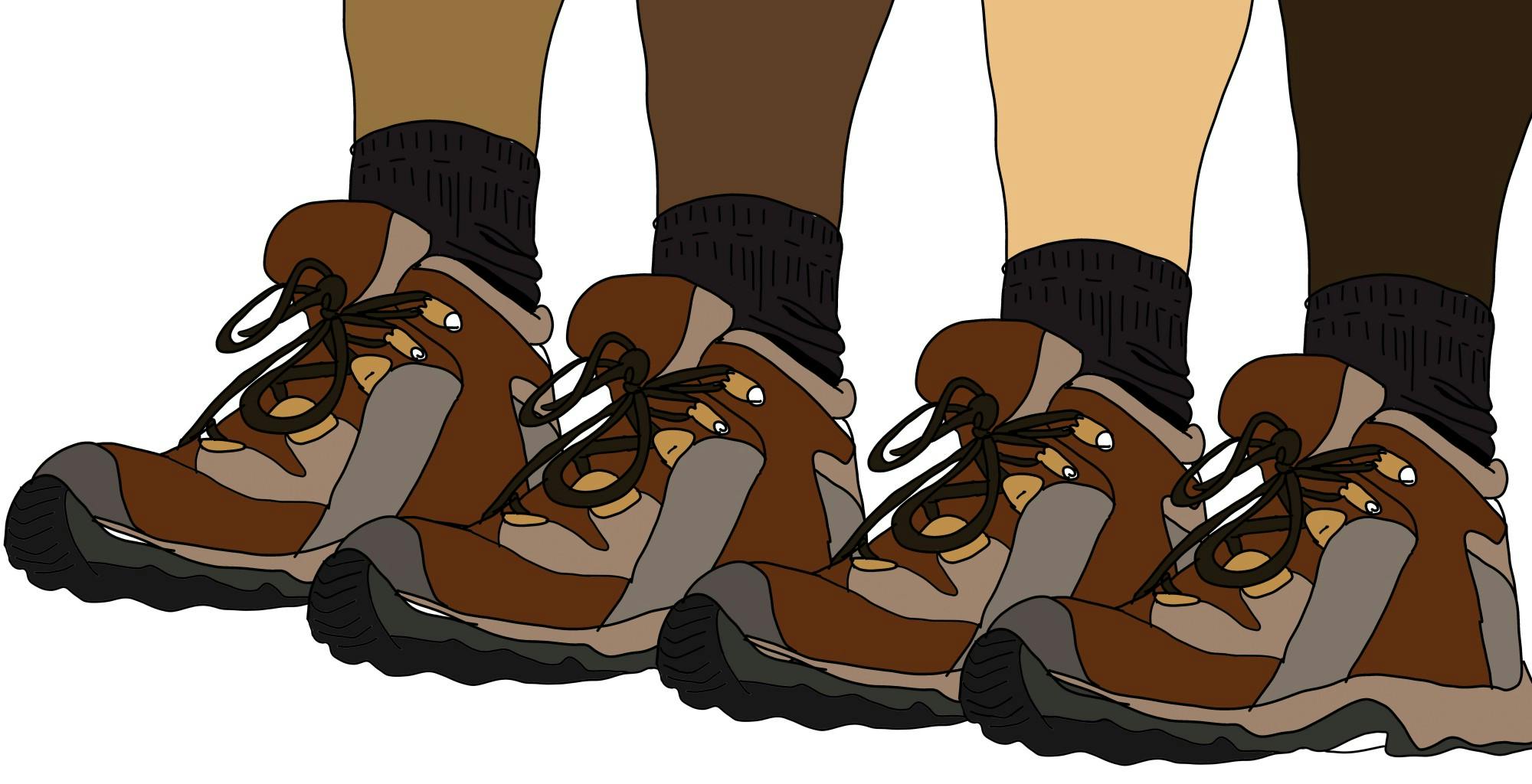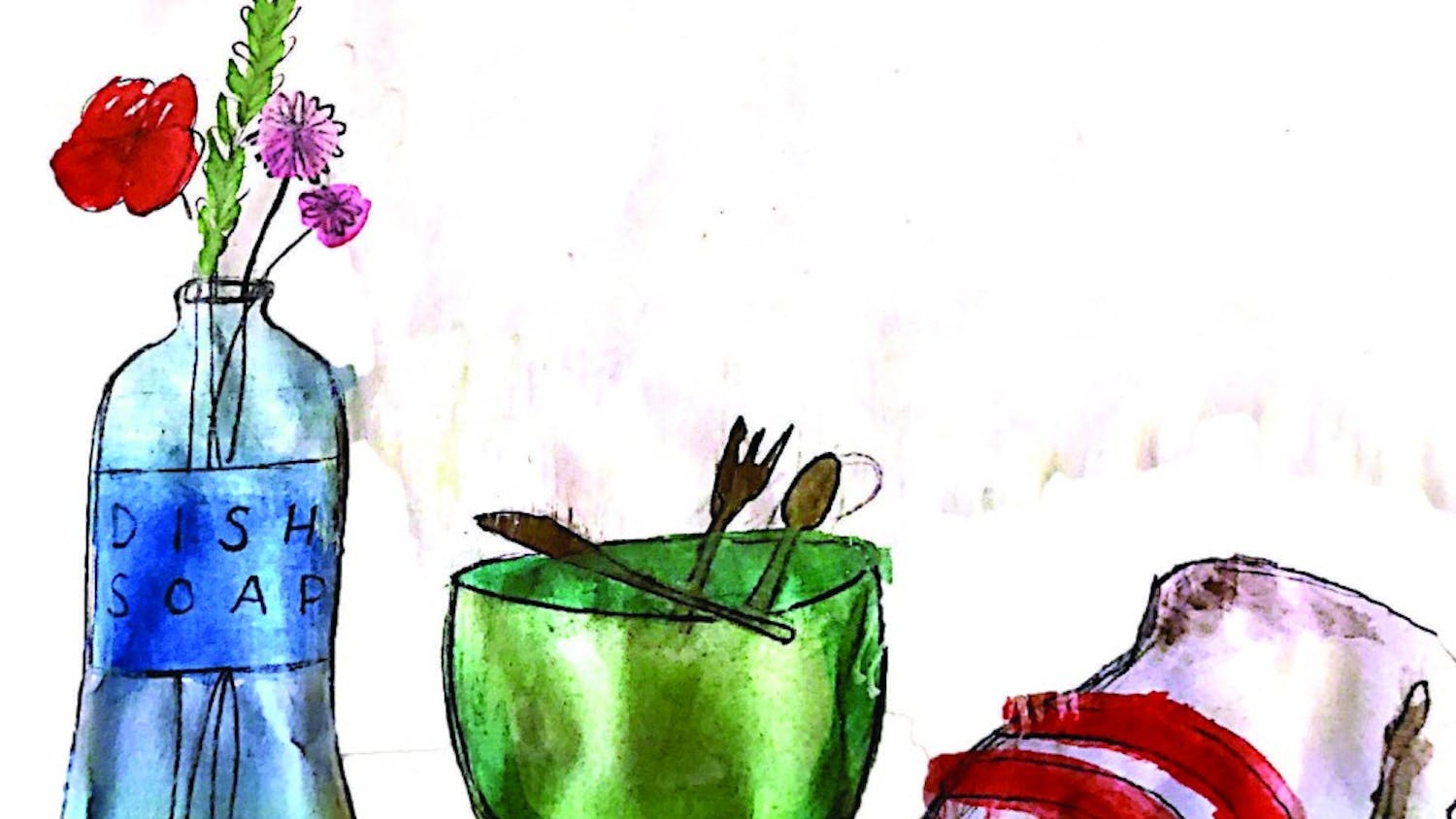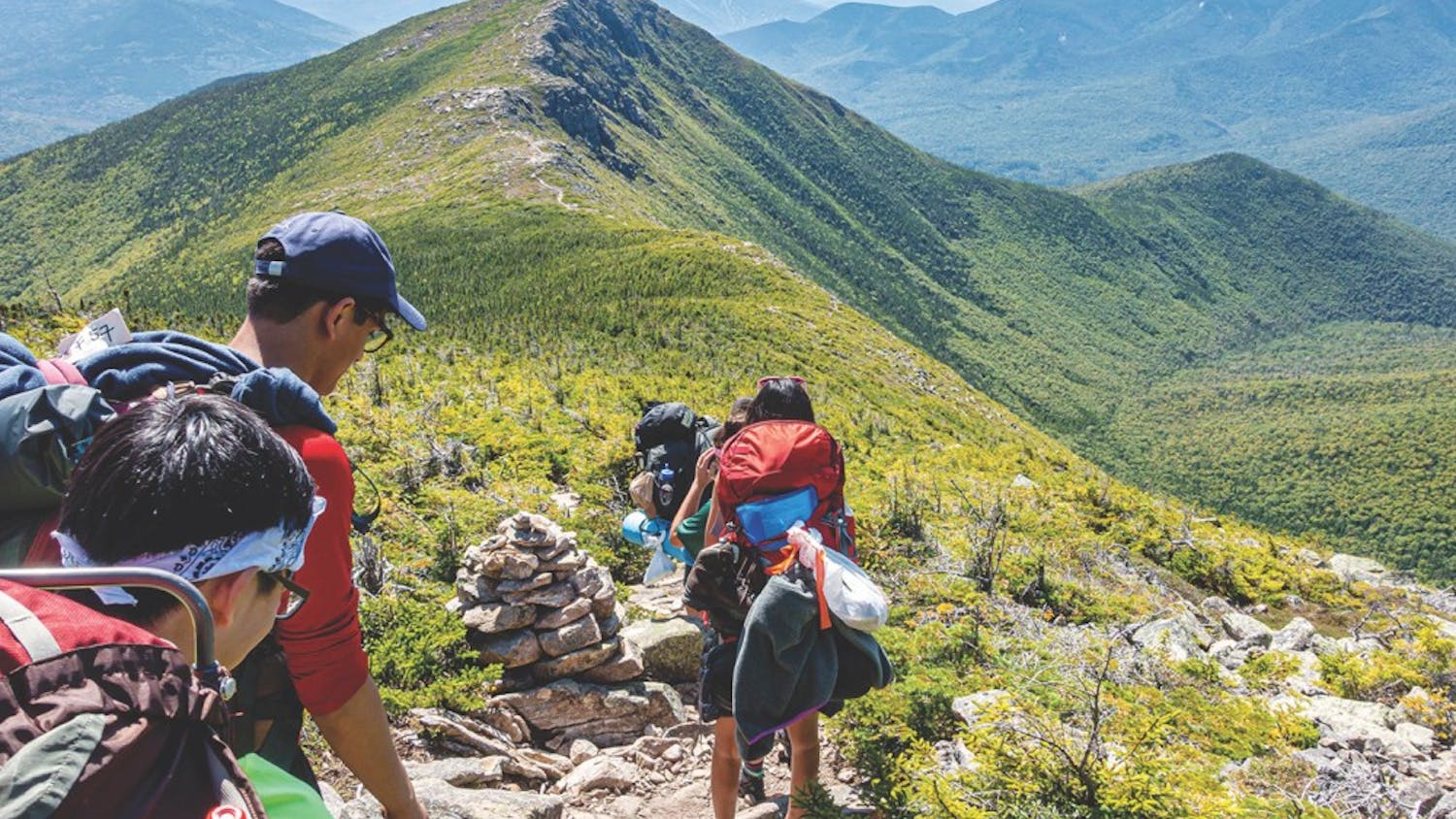The outdoors are an inherently expensive space, leading many people to associate outing clubs, like Dartmouth’s, with privilege. Today at 7:30 p.m. in One Wheelock, the Dartmouth Outing Club will be hosting an event called “Identity and the DOC” which aims to facilitate a conversation about privilege and the outdoors and take steps toward making the DOC an increasingly inclusive space, according to DOC president Sarah Kolk ’20.
Elliot Ng ’21, a member of the DOC directorate, said that this event was created because part of the DOC’s mission is to make the outdoors more accessible.
“I think the first time I stepped into a big sub-club meeting of the DOC, it was very apparent there were not many people of color or female-identifying people,” Ng said. “You can go through that without asking yourself why that is, or you can go through that and ask what are all these factors that make Dartmouth, the DOC and our wider community like so, and why the outdoors are mainly consumed by the people who have more privilege and more money.”
The DOC had a similar event this past summer, which focused on female and non-gender conforming persons’ experiences in the outdoors, according to Kolk. The new event aims to push further at the topics introduced over the summer while still being accessible to students who did not attend.
Over the past few years, the DOC has been trying to address accessibility issues in numerous ways, and Kolk said she believes they have made productive moves. One of the ways you can quantify the changes, according to Kolk, is by the number of people involved with the DOC.
“Institutional memory is a funny thing because I’ve only been here for four years, and I can say I’ve seen some change, but when I talk to alums who are 10 years out, they’re like ‘The DOC is so much bigger and more welcoming than it ever was,’” Kolk said.
Two of the attempts to make the DOC more inclusive come with the addition of the People of Color in the Outdoors Club and Women in the Wilderness sub-clubs. While these clubs serve an important purpose in making a wider array of Dartmouth students feel welcome, it’s also important to Kolk and Ng that they feel welcome in other areas of the DOC as well.
Victoria Faustin ’23 has been involved with Cabin and Trail and WIW this term and said she has found the environment very welcoming, both inside the sub-clubs and in the DOC as a whole.
“Nothing’s perfect and nothing will ever be perfect, but I think the DOC is doing a fantastic job in trying to promote inclusivity,” Faustin said. “I haven’t been personally involved in an instance where I didn’t feel part of the club, and I think a lot of sub-clubs try to work with WIW.”
According to Kolk, there was initially discussion over whether this "Identity and the DOC" event should partner with WIW and/or POCO. The directorate decided against this, citing the importance that this conversation is facilitated by the DOC as a whole.
“Making these initiatives come from the institution rather than these subgroups is really important because it’s the goal of the whole DOC to become more inclusive and to have a more inviting culture,” Kolk said. “It shouldn’t be POCO’s prerogative to change the DOC, it should be the DOC’s prerogative to change the DOC.”
The other large part of accessibility in regards to the outdoors is financial accessibility, which in the past served as a barrier for many students.
Now, the DOC has heavily subsidized events these groups sponsor, according to Kolk. The goal moving forward is to keep all major events, like the hikes and weekly feeds, entirely free. Additionally, break trips are subsidized in order to make them accessible to more students.
Kellen Appleton ’20, the newly appointed director of First-Year Trips for 2020, said the issues of inclusivity and representation are something the Trips program has grappled with for a while.
“The outdoors is such an expensive place,” Appleton said. “It’s a place that is usually very inaccessible ... It’s usually the realm of wealthy white people. And I think that’s a problem here at Dartmouth, too; we’re not perfect. But I think there’s a lot of people working very hard to make sure the DOC is a space for everyone.”
Creating a welcoming environment is the main goal, said Appleton, especially considering that Trips are the first introduction to the DOC for first-years.
“We have this problem of ‘There are lots of people participating in trips but the people who are running and volunteering for trips don’t necessarily reflect the people who are actually participating in it,’” Appleton said. “It’s definitely a top priority for us, simply because we want this space to be as welcoming as possible to as many different types of people as possible.”
According to Ng, the “Identity and the DOC” event is a small part of a much larger ongoing conversation. It is important, said Ng, that this is not a once-a-year occurrence where people talk about inclusivity and then immediately forget about it.
Kolk’s main goal for the event is for students, especially underclassmen, to engage with discussion and keep this knowledge in their minds when they become leaders. Kolk emphasized the fact that this event is for everyone on campus, whether they are involved with the DOC or not, because the conversation applies to more people than just those heavily involved in the club.
“We didn’t want to put any constraints on who should speak and what they should speak about,” Kolk said. “It’s very much open, but with the idea that the goal is to recognize and listen to a diverse array of experiences.”




